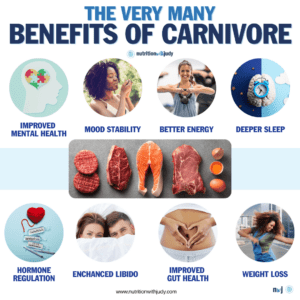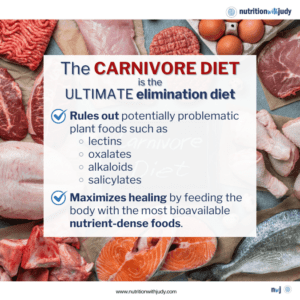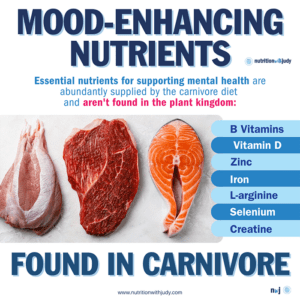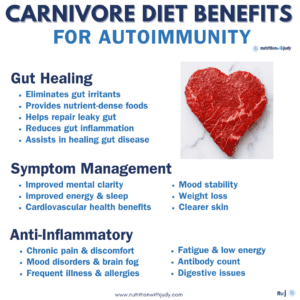

Can Bull Testicles Boost Testosterone?


Can bull testicles boost testosterone? This question has intrigued many, especially those exploring the carnivore diet or looking to optimize wellness. In this article, we’ll take a closer look into the nutritional benefits of bull testicles, their potential impact on testosterone levels, and how they fit into a meat-based lifestyle.
Known as a rich source of essential vitamins and minerals, bull testicles are believed to support hormone production and overall vitality. By exploring the science behind these claims, we aim to provide a comprehensive understanding of how incorporating this unique food can contribute to optimal health and wellness.
What Is the Carnivore Diet?


The carnivore diet, centered on animal-based foods, offers several variations to suit individual needs and health goals. Here’s a breakdown of these variations:
- Beef-Only Carnivore Diet: This approach focuses solely on consuming beef, making it ideal for elimination diets due to its simplicity and effectiveness. It’s recommended for those with autoimmune or chronic health issues. However, long-term adherence may require adding other meats for nutritional balance.
- Lion Diet: A stricter form, the lion diet consists only of ruminant meats, salt, and water. Often used in elimination protocols, it’s a great starting point for those with autoimmune and gut healing needs.
- Nose-to-Tail Carnivore Diet: This variation emphasizes consuming all parts of the animal, including organ meats, for comprehensive nutrient intake. Caution is advised with liver and kidney consumption to avoid nutrient imbalances such as vitamin A toxicity, especially in those with liver conditions.
- Meat-Only Carnivore Diet: This diet includes all muscle meats while excluding organ meats, dairy, and eggs. It’s ideal for those looking for a foundational elimination diet and who tolerate muscle meats well.
- Zero-Carb Carnivore Diet: Focusing on zero to minimal carbohydrates, this diet includes all meats, dairy, and eggs, emphasizing meat and animal fat. It’s suitable for individuals without autoimmune or chronic health issues and who tolerate dairy and eggs.
- Carnivore Keto Diet: Combining low-carb, high-fat principles of the ketogenic diet with the carnivore diet, this variation includes keto-friendly, low-toxicity plant foods such as avocados and coconut oil. Recommended for metabolically healthy individuals who have healed or mostly healed chronic health issues.
- Carnivore-Ish Keto Diet: This flexible variation incorporates more ketogenic elements while maintaining a focus on animal-based foods. It allows alternative keto sweeteners, some nuts, and other keto-friendly foods. It’s recommended for metabolically healthy individuals without food addiction issues.
- Animal-Based Diet: More inclusive than the strict carnivore diet, this variation includes animal products at its core, with the addition of fruit, honey, and raw dairy. It’s suitable for healthy individuals with high metabolic flexibility and elite athletes, but not recommended due to the risks of mixing carbs and fats.
What Are the Benefits of the Carnivore Diet?


The carnivore diet offers many health benefits not available from other dietary modalities. Here are some of the benefits of the carnivore diet and explain why individuals will want to try this way of eating.
1. Nutrient Density: Animal products are nutrient-dense, providing essential vitamins and minerals in bioavailable forms that are easily absorbed by the body. Meat, particularly red meat, is rich in B vitamins, iron, zinc, and complete proteins. This high nutrient density can help prevent deficiencies and support overall health.
2. Elimination of Anti-Nutrients: Plant-based foods often contain anti-nutrients such as oxalates, phytates, and lectins, which can interfere with the absorption of essential nutrients and contribute to digestive issues and inflammation. By eliminating these foods, the carnivore diet may reduce the intake of these compounds, potentially alleviating symptoms for individuals with sensitivities or autoimmune conditions.
3. Reduction in Inflammation: Chronic inflammation is linked to numerous health issues, including autoimmune diseases, heart disease, and metabolic syndrome. The carnivore diet’s exclusion of processed foods, sugars, and plant-based anti-nutrients can help lower inflammation levels. Many have reported significant reductions in symptoms of conditions such as arthritis, eczema, and irritable bowel syndrome (IBS).


4. Improved Digestion: For those with digestive disorders, such as IBS, Crohn’s disease, or leaky gut syndrome, the carnivore diet can offer relief. By removing fibrous plant foods that can be hard to digest, the diet can reduce bloating, gas, and other gastrointestinal symptoms. Meat is easier to digest for those with compromised digestive systems. The carnivore diet is also ideal for gut healing and optimal gut wellness.
5. Stable Blood Sugar Levels: The carnivore diet eliminates carbohydrates, which can cause spikes and crashes in blood sugar levels. By consuming only protein and fat, individuals can maintain stable blood sugar and insulin levels. This stability can be particularly beneficial for people with insulin resistance, diabetes, or metabolic syndrome.
6. Weight Loss and Body Composition: Many people turn to the carnivore diet for weight loss. The high-protein intake promotes satiety, reducing overall calorie consumption. Additionally, the body becomes more efficient at burning fat for fuel in the absence of carbohydrates. This shift can lead to improved body composition, with reductions in body fat and increases in lean muscle mass.


7. Mental Clarity and Mood Improvement: Many individuals have improved mental clarity and mood stability on the carnivore diet. The brain requires essential fatty acids and amino acids found in animal products to function optimally. By providing these nutrients in abundance and eliminating blood sugar fluctuations, the diet may enhance cognitive function and emotional well-being.
8. Simplicity and Convenience: The carnivore diet’s simplicity can be appealing. With no need to count calories or macros, meal planning becomes straightforward. This ease can make the diet more sustainable for some individuals, as it removes the complexity of balancing various food groups and nutrients.
9. Reduction in Cravings and Food Addictions: Eliminating carbohydrates and sugars can help reduce cravings and break the cycle of food addiction. By consuming satisfying and nutrient-dense animal products, individuals often find they no longer crave junk food or sugary snacks.


10. Autoimmune Disease Management: The carnivore diet can be particularly beneficial for those with autoimmune diseases. By eliminating potential dietary triggers and focusing on nutrient-dense foods, many people experience reductions in symptoms and, in many cases, remission of their autoimmune conditions.
What Are the Benefits of Bull Testicles?
Bull testicles, also known as Rocky Mountain oysters or prairie oysters, are the testicles of a bull and are considered a delicacy in many cultures. They are known for their unique texture and nutritional profile, offering a variety of health benefits that can make them a valuable addition to certain diets, especially those focused on nutrient density and traditional eating practices.
Nutritional Profile
Bull testicles are rich in essential nutrients, including high-quality protein, healthy fats, vitamins, and minerals. Additionally, they contain vitamins such as vitamin B12, which is important for energy production and maintaining healthy nerve cells, and vitamin D, which supports bone health and immune function.
Hormone Production and Testosterone Boost
One of the most touted benefits of consuming bull testicles is their potential to support hormone production and increase testosterone levels. Testosterone is a critical hormone for both men and women, playing a key role in muscle growth, fat loss, energy levels, and overall vitality. This is actually a nuanced misconception that we’ll examine later in this article.
Protein and Muscle Support
Bull testicles are a great source of high-quality protein, which is essential for muscle repair and growth. Protein is made up of amino acids, the building blocks of muscle tissue. For athletes and those looking to increase muscle mass, incorporating nutrient-dense foods such as bull testicles can provide the necessary proteins and amino acids to support their goals.
Traditional and Cultural Significance
In many cultures, consuming bull testicles is not only a nutritional choice but also a tradition passed down through generations. They are often seen as a source of strength and vitality. For example, in some Native American tribes, they were eaten by warriors and hunters to boost their physical capabilities. In Mediterranean and South American cuisines, bull testicles are considered a delicacy and are often prepared with rich spices and sauces, making them both a nutritional powerhouse and a cultural experience.
What Are the Symptoms of Low Testerone?


Low testosterone, also known as hypogonadism, can affect men and women, leading to a variety of physical, emotional, and cognitive symptoms. Testosterone is a vital hormone responsible for regulating numerous bodily functions, and its deficiency can significantly impact overall health.
- Fatigue and Reduced Energy Levels: Chronic tiredness and a noticeable decrease in energy can be one of the earliest signs of low testosterone.
- Muscle Loss and Weakness: Testosterone plays a crucial role in muscle mass maintenance and strength. A decline in this hormone can lead to muscle atrophy and increased physical weakness.
- Increased Body Fat: Lower testosterone levels are often associated with higher body fat, particularly around the abdomen.
- Reduced Bone Density: Testosterone is important for bone health, and low levels can result in decreased bone density, increasing the risk of osteoporosis and fractures.
- Decreased Libido and Erectile Dysfunction: Low testosterone can lead to a reduced interest in sex and difficulties in achieving or maintaining an erection.
- Depression and Mood Changes: Testosterone influences mood, and low levels can lead to symptoms of depression, irritability, and overall mood instability.
- Cognitive Decline: A decrease in testosterone can affect cognitive functions, leading to problems with concentration, memory, and mental clarity.
- Sleep Disturbances: Low testosterone can contribute to sleep issues, including insomnia and other sleep disorders.
- Low Libido: A significant drop in sexual desire is a common symptom of low testosterone.
- Erectile Dysfunction: Men may experience difficulties in achieving or maintaining an erection due to insufficient testosterone levels.
- Hair Loss: Testosterone contributes to hair production, and its deficiency can lead to thinning hair or hair loss.
- Hot Flashes: Similar to menopausal symptoms in women, men with low testosterone may experience hot flashes and sweating.
Recognizing these symptoms is crucial for seeking appropriate medical evaluation and treatment to address low testosterone levels and improve overall quality of life.
Can Bull Testicles Boost Testosterone?
There is a common misconception that consuming bull testicles, or any animal testicles, can significantly boost testosterone levels in humans. However, the bioavailability of testosterone from ingesting bull testicles is minimal, if present at all. Testosterone, similar to other hormones, is largely broken down in the digestive process and does not directly contribute to the hormonal balance in the human body when consumed in food form.
The idea of eating bull testicles to increase testosterone levels is more folklore than science. Testosterone in foods does not directly translate into increased testosterone levels in the body. The human endocrine system is complex and regulated by numerous factors, including but not limited to dietary intake. The body synthesizes most of its testosterone endogenously, and dietary sources are not a primary contributor.
Despite this, bull testicles are a nutritious food rich in proteins, vitamins, and minerals. They can be a valuable addition to the diet, especially for those looking to increase their intake of high-quality animal proteins and essential nutrients. However, relying on them as a primary source for boosting testosterone is not practical or effective.
How Can You Boost Testosterone?
Boosting testosterone levels can be achieved through various lifestyle changes, dietary adjustments, and targeted nutritional strategies. Here, we explore methods to naturally increase testosterone, with a focus on how the carnivore diet can play a significant role.
Dietary Adjustments
- High-Protein Intake: Consuming high-quality protein sources in particular meat, fish, and eggs supports muscle growth and repair, essential for maintaining healthy testosterone levels. The carnivore diet ensures an ample supply of protein, essential amino acids, and nutrients necessary for hormone production.
- Healthy Fats: Testosterone production relies on healthy fats, particularly saturated and monounsaturated fats. The carnivore diet, rich in animal fats, helps supply these essential fats, supporting the body’s hormonal health.
- Elimination of Processed Foods: By eliminating processed foods, sugars, and refined carbohydrates, the carnivore diet can help maintain hormone balance. Focusing on nutrient-dense animal products reduces inflammation and supports overall hormonal function.
Lifestyle Changes
- Regular Exercise: Engaging in regular physical activity, especially resistance training and high-intensity interval training (HIIT), significantly boosts testosterone levels. Exercise stimulates testosterone production and promotes muscle growth, crucial for hormonal health.
- Adequate Sleep: Quality sleep is essential for maintaining optimal testosterone levels. Aim for 7-9 hours of uninterrupted sleep per night to support hormone production and overall well-being.
- Stress Management: Chronic stress elevates cortisol levels, which can negatively impact testosterone production. Practices such as meditation, deep breathing exercises, and mindfulness help manage stress and support hormonal balance.
Nutritional Strategies


- Vitamin D: Adequate vitamin D levels are important for testosterone production. Sun exposure and dietary sources such as fatty fish and fatty ribeye help maintain sufficient vitamin D levels. The carnivore diet, rich in vitamin D from animal products, supports this requirement.
- Zinc: Zinc is essential for testosterone production. Red meat and shellfish, staples of the carnivore diet, are excellent zinc sources, ensuring adequate intake for hormonal health.
Closing Thoughts on Bull Testicles, Testosterone, and the Carnivore Diet
Boosting testosterone can be achieved through lifestyle changes, dietary adjustments, and targeted nutritional strategies. Regular exercise, particularly resistance training and HIIT, is vital for stimulating testosterone production and promoting muscle growth. Ensuring adequate sleep (7-9 hours) and managing stress through practices such as meditation and mindfulness are also crucial, as chronic stress elevates cortisol levels that negatively impact testosterone.
Dietary adjustments focus on high-quality protein sources including meat, fish, and eggs, which support muscle repair. The carnivore diet, focusing on nutrient-dense animal products, provides essential amino acids and healthy fats necessary for hormone production while eliminating processed foods that disrupt hormone balance. Key nutrients include vitamin D from sun exposure and foods including fatty fish and fatty ribeye, and zinc from red meat and shellfish, both vital for testosterone synthesis.
Despite myths, consuming bull testicles does not significantly boost testosterone levels as dietary testosterone is broken down during digestion. While bull testicles are nutritious, providing proteins, vitamins, and minerals, they should not be relied upon as a primary source for increasing testosterone. The body primarily synthesizes testosterone endogenously, and diet plays a supporting rather than a direct role in this complex hormonal process.
Pro-Tip: If your nutrition and lifestyle have been optimized but your testosterone levels are still low, you may want to look into deeper root causes such as environmental illness, heavy metal toxicity, and so on.
Work With Our Trusted Carnivore Diet Functional Nutritional Therapy Practitioners
The Nutrition with Judy practice is honored to be a trusted carnivore diet practitioner support serving clients from around the globe. We’re passionate about helping our clients achieve root-cause healing in order to lead the best quality of life possible that’s nearly symptom-free. Our team is dedicated to debunking mistruths and providing nuanced nutritional education. We welcome you to explore our free resources and are always available to support you through personalized protocols. Our Symptom Burden Assessment (SBA) is the perfect starting point for discovering your root cause and is required to work with our team— you can learn more in-depth about this powerful tool here.
Start your root-cause healing journey today and contact us any time with any questions or concerns.
DISCLAIMER: This content is for educational purposes only. While we are board-certified in holistic nutrition and are nutritional therapy practitioners, we are not providing medical advice. Whenever you start a new diet or protocol, always consult with your trusted practitioner first.





